Writing a Quest Myth – individually
£2.00
Activities in this lesson include reminders about the features of a quest myth, looking at the structure a quest myth in detail, looking at the plot of Jason and the Golden Fleece, a step-by-step guide to writing a quest myth, looking at terrifying creatures in myths, what to focus on when writing a quest myth and a template to structure the myth.
There is a five-minute evidence-based CPD activity at the end of this lesson which will develop classroom teachers’ skill set. This CPD consists of a research extract on self-assessment with a five-minute activity based on this extract.
Description
These evidence-based learning (EBL) lessons are based on classroom practice that has been proven, by research, to maximise thinking, learning and attainment. From an extensive review of educational research, we identified the eight key classroom thinking and learning skills that were common across these research papers. We named these eight key skills “EBL skills”.
EBL skills have been proven by research to maximise learning because they combine the most productive thinking skills with the most effective learning behaviours. Each of our evidence-based learning lessons uses the English curriculum as a framework through which the eight EBL skills are delivered.
Teachers also have the opportunity to add to their own skill set or refresh their existing skills with our five-minute CPD activity, based on one of the EBL skills used in this lesson.
The skills in bold below are the EBL skills developed in this Myths lesson. Click on each skill to learn more about that skill.
- Collaboration
- Thinking Skills
- Peer Assessment
- Peer Teaching
- Self-Assessment
- Metacognition
- Self-Regulation
- Independent Learning
1 review for Writing a Quest Myth – individually
Only logged in customers who have purchased this product may leave a review.
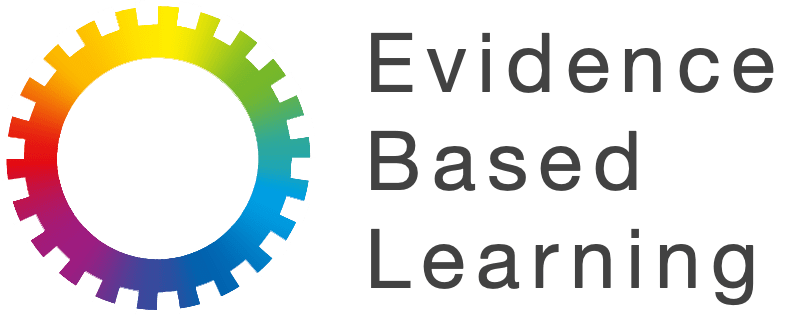




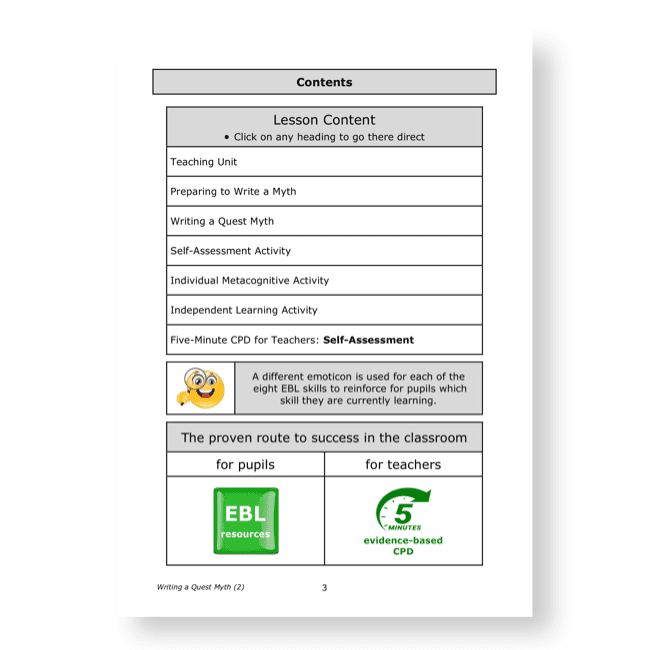
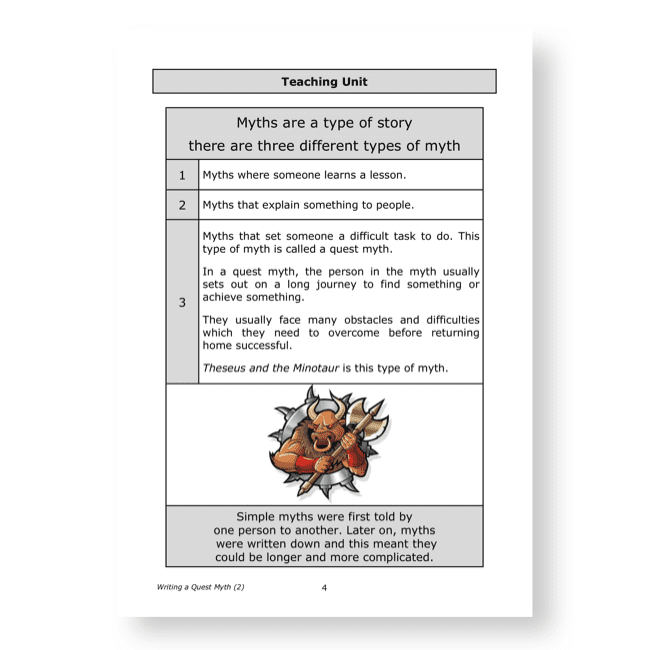
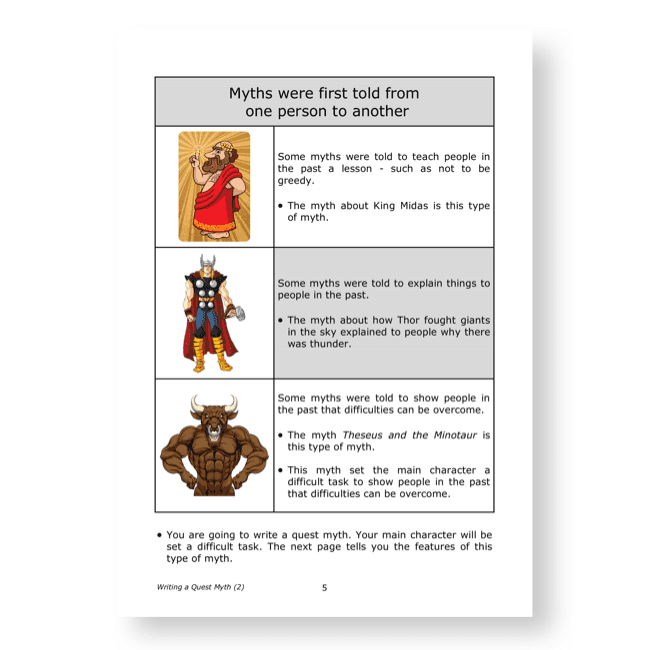


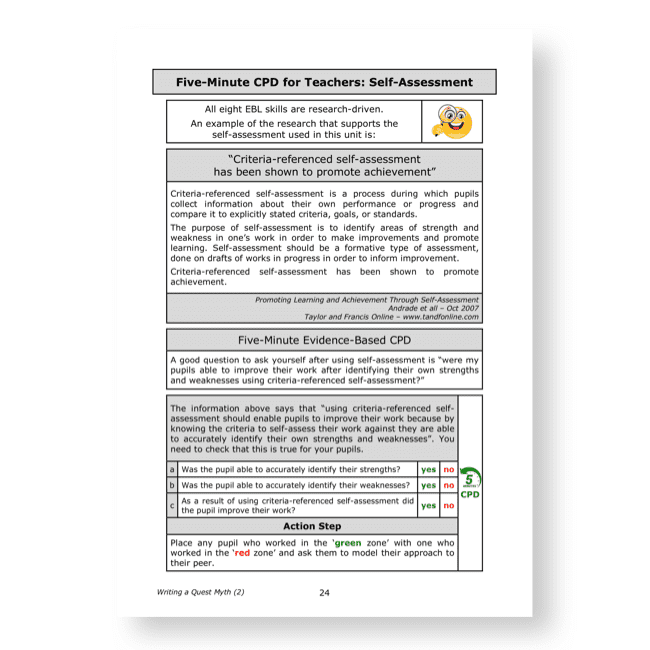
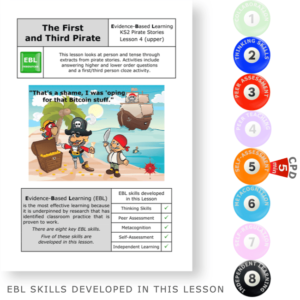

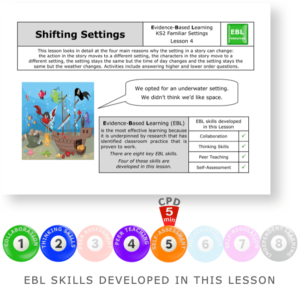

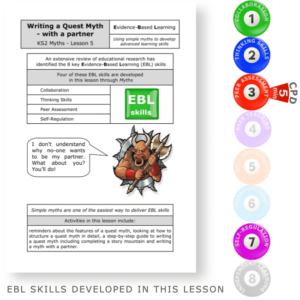
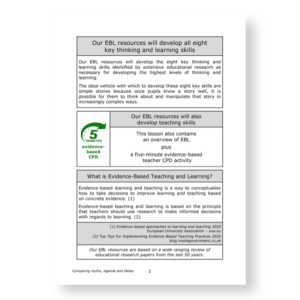
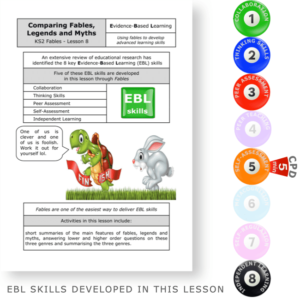
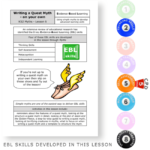
Philipem (verified owner) –
We asked a.i. to review this lesson. This is what it said:
Teaching English and Evidence-Based Learning Skills with Myths
Teachers, I’ve discovered a great resource called “Writing a Quest Myth – individually” where students plan and write their own myths. It blends literacy skill development with research-backed learning strategies.
In particular, this quest myth writing lesson focuses on thinking skills, self-assessment, metacognition, and independent learning. For example, students are reminded of the key parts of a myth plot and then guided through planning their own story starring gods, heroes, and magical objects. There are tables to complete on characters and obstacles.
After writing their individual myth, a criteria-based self-review activity allows students to check and improve their own work. There is also a metacognitive question focused on the value of identifying personal strengths versus weaknesses from the self-assessment.
The lesson finishes up with a 5-minute CPD extract for us teachers centred on the academic benefits of self-assessment. It summarises studies showing self-review allows students to pinpoint areas to upgrade.
Implementing more metacognitive and self-directed learning are very effective learning strategies. The full lesson allows students to really lead their own quest myth writing.
With its individual creative writing, self-assessment model, and teacher CPD focused on achievement, I give this comprehensive quest myth lesson ⭐⭐⭐⭐⭐. It empowers students to drive their own literacy progress through structured planning and informed self-evaluation.